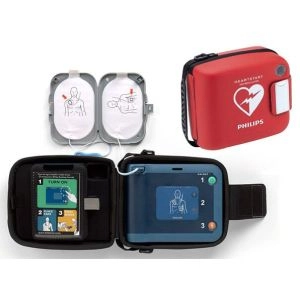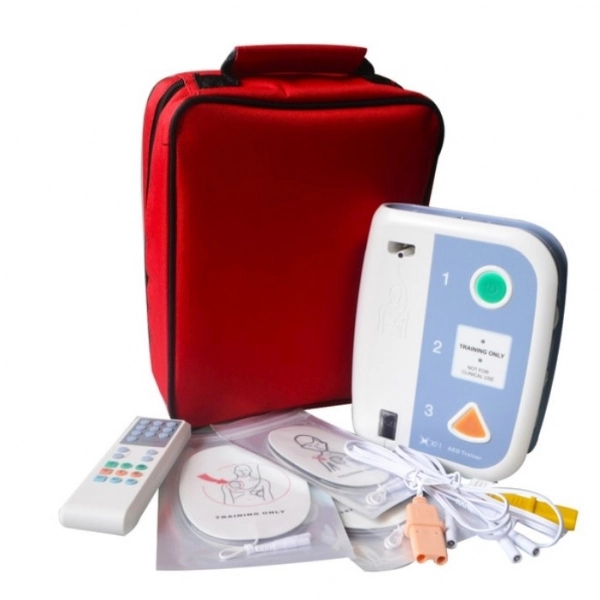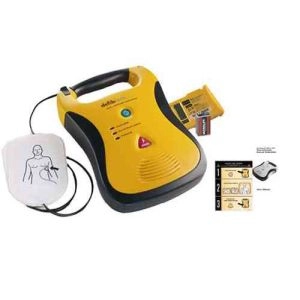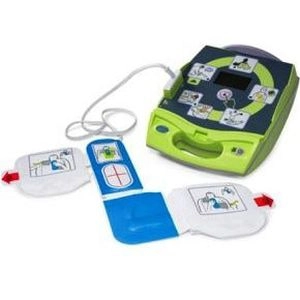AED & Accessories
AED Machine; Philips FRx Defibrillator®
Phillips


Contact for special discount prices
AED Machine; Philips FRx Defibrillator®

The Philips FRx Defibrillator (AED) is designed with advancements in technology to help respond and treating the most common causes of Sudden Cardiac Arrest.
Design
Created with the goal of easy set up and easy use, while being reliable and rugged for the first responders on the scene. Here in Thailand that means ready for the dust and heat!
Adding to "easy-to-use" Philips designed the "SMART Pads II". These AED pads that attach to the patient's bare chest can be used for both, adults and children. This eliminates the need for two separate sets of pads for adult and children. Saving you money.
Question: How do the "SMART Pads II" work?
Answer: Simply insert the Child/Infant key into the FRx AED at the clearly marked "slot" at the top of the AED. Instantly the AED recognizes you are treating a child or infant and adjust the "shock" strength.
Question: Where do I put the pads on the chest if I'm not sure?
Answer: Look at the AED and you’ll see illuminated pads icons that will be flashing showing the best pads placement.
A illuminated visual display and clear, calm voice instructions show and tell you what to do and when to do it.
There is even an optional Infrared port for data transmission to a PC or smartphone with the Event Review software. No cables or hardwire to get in the way.
At the Heart of the FRx AED is SMART Biphasic technology. The exclusive Philips SMART Biphasic waveform is proven technology that minimizes the possibility of harmful side effects. The technology is supported by more than 40 published, peer-reviewed studies.
SMART technology automatically analyses and assesses the victim's heart rhythm for Ventricular Tachycardia or Fibrillation to determine if a shock is advised. Unless the analyses determined it’s a shockable rhythm, "even if you press the Shock button, no shock will occur".
With Philips patented "Quick Shock", the FRx AED is one of the fastest in class at delivering a shock.
Studies show that shorter the time to shock a patient after CPR can improve successful resuscitation.
The American Heart Association AHA Guidelines 2005 state, "Reduction in the interval from compression to shock delivery by even a few seconds can increase the probability of shock success."
You may also be interested in
Inquire about this Product



